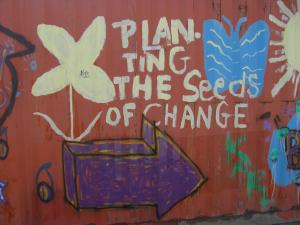
It is a sad fact that people can often see something happening which they know is wrong but do nothing to fix it. This was often the case with slavery. Many, when they were exposed to the slave trade in action, were horrified by what they saw, and yet, despite that, they did nothing about it, indeed, they still accepted its place in the social order. This, for example, was the case with Fr. Ippolito Desideri, SJ. He was a missionary making his way to Tibet when he came face to face with the reality of slavery. His description of the event shows us the unease he had with the experience, but, in the end, it also shows, after expressing his discontent with what he saw, he showed his acceptance of it and the way some people benefited on the exploitation of others:
We had to wait at Mozambique for the arrival of some ships form the Senna region bringing with them a great quantity of very large and long elephant tusks, gold, silver, black amber, and numerous kafirs or blacks who were purchased as slaves to be sent to Goa and sold at a profit. It was there that I saw for the first time, to my dismay. Trafficking in the life and liberty of human beings. The slavers, however, were not allowed to embark on the ships and leave Mozambique without first being baptized. For every baptism the parish priest receives a cruzade – a silver Portuguese coin which, if I am not mistaken, is equivalent to half of a Roman scudo – and a candle. It is pitiful to see how easily these kafirs are baptized so long as this tax is paid, although they do not receive any religious instruction nor do they understand the language. On departing Mozambique for Goa, they fill the ships up with so many kafirs that in addition to the crowding and the discomfort, the vessels become very filthy. In Goa, as I mentioned, they are sold for a rather high price on account of their strength, fitness for hard work, and loyalty. For those reasons, it is very useful to own a goodly number of such slaves, apart from the prestige this confers. [1]
Desideri, for a brief second, saw how terrible the slave trade was and why it should be rejected. Human beings are meant to be free. Christianity is meant to help free people from all the bondages of sin including social sin. And yet, Christians were engaged in the slave trade, making money on the lives of others. Perhaps to mollify their conscience, slaves were often baptized en masse, but, after that, it seems, it did not matter they had become Christian. Even as a Christian, their human dignity remained undermined. Those baptizing them did not do much more to help them as their religious education and spiritual direction was virtually non-existent. Desideri saw the horror of it – indeed, he commented upon the horror of it – but then, it was as if he said nothing, for he next reflected upon the enterprise by saying how good it was for people to own a large number of slaves, showing he did not think much of the good of those who were enslaved.
Desideri, a priest going to Tibet, indeed, helping to establish the Tibetan mission for the church, while he ignored the needs of those who were next to him, those he recognized also needed religious catechesis. Indeed, he saw those who needed his voice to speak on their behalf, as he was exposed to how terrible the slave trade was. Instead, after a brief reflection, showing how his conscience was pricked, he ignored them. Part of this, to be sure, was cultural, as Christians had been raised to accept slavery, so that, in a way, the fact that he saw some horror involved in the situation, and he indicated that he did like the way they were left without any proper religious catechesis, shows us that people, if they listened to their conscience, should have known how wrong the enterprise was and begun to work to counter that wrong. Indeed, that he realized how wrong the situation was means he was that much more culpable for it than those who was ignorant of all the cruelty involved in the slave trade. On the other hand, his words here show us that there were some beginning to see the problem of slavery, and they were beginning to speak about it, so that, over time, as more saw the problem and spoke of it, they would provide the foundation for the changes which would eventually take place.
The sad fact is, that in every age, Christians are often raised to accept and follow cultural norms which run contrary to the Christian faith, and in doing so, find excuses to ignore what Christ told them to be like. Today, so many ignore the plight of the poor and the oppressed, as can be seen in the way so many are hostile to the needs of migrants and refugees, while thinking they are good Christians because they acknowledge the basic dogmatic teachings of the church. They think having the right beliefs is enough, but Christ said if Christians loved him, they would do as he said, and what he said often was said in behalf of the needs of the poor and dispossessed.
This is a problem not only for Christianity, but for most major religious traditions. There is much within those traditions which, if engaged, would promote for the positive transformation of society. But, sadly, people often use religion as a source and foundation for oppression instead of freedom and the common good, and in doing so, they ignore the social justice declarations which can be found promoted by spiritual leaders found in their faith traditions. Abdul Ghaffar Khan, for example, saw this problem within Islam: “Islam had come to the world to liberate its followers and to save the weak from the brutalities of the oppressors, but today the Muslims of Hindustan were in favour of slavery, they were the friends of oppression – and still professed to be Muslims.”[2] Gandhi, of course, demonstrated similar concerns with Hinduism and the injustices created by its caste system.
So many look to the bad of other religions, and use that to prop their own faith, but such triumphalism leads people to ignore the problems of their own faith tradition. What is necessary is for people to be critical of their own religious tradition. We need people like Abdul Ghaffar Khan and Gandhi, people who are faithful and yet capable of promoting reform, reform which promote and reinforce the best elements of their faith tradition while also remaining faithful to the basic dogmatic teachings of their faith. We need thinkers who are able to show how actions which have become normalized and accepted by many in their tradition are inverting the basic principles of their faith, showing that such moral reform ultimately serves orthodoxy instead of being seen as its foe. Christian history shows, even early on, that there were some who understood the evil of slavery; this is why St. Gregory of Nyssa was able to write against the practice. Sadly, though those voices were there, many, if not most, were not interested in listen to such social criticism; they wanted religion to be used to help mollify such criticism, to keep people accepting things as they are without looking for any change. Such people give some justification for the way Marx saw religion was mostly a tool to manipulate and control society.
Today, many people see the horrors of slavery and agree with those who, in the past, spoke out against its evils. Slavery has not been entirely eliminated in the world, but it no longer receives the same kind of promotion and defense as it once did from Christians. It should have been eliminated much earlier. It should never have been accepted as a norm for Christians. They should have realized its practice ran contrary to the way Christ served the poor and needy in the world. And yet, to be sure, it would have taken even longer if there were no voices who spoke, however briefly, about the evil the saw when they encountered it in practice. This is why Desideri’s brief reflection on what he saw and his initial reaction to it, represented an important voice, one which was needed, so that when they time came, all those intuitions could and would help serve those working for positive social change. And if this is the case with the past, it can and should be the case today; we should always give our help and support to the oppressed, to explain the problems we see when social injustice is involved, even if we feel we cannot change the situation ourselves because our words, our voice, can help serve as seeds for social change. But, sadly, if we say nothing now, that change will only take that much longer to happen, if ever.
[1] Michale J Sweet, trans., Mission To Tibet: The Extraordinary Eighteenth Century Account Of Father Ippolito Desideri, S.J. (Boston: Wisdom Publications, 2010), 129.
[2] Abdul Ghaffar Khan, My Life and Struggle. Trans. Imtiaz Ahmad Sahibzada (Roli Books: Greater Noida, India: 2021), 288.
Stay in touch! Like A Little Bit of Nothing on Facebook.
If you liked what you read, please consider sharing it with your friends and family!
N.B.: While I read comments to moderate them, I rarely respond to them. If I don’t respond to your comment directly, don’t assume I am unthankful for it. I appreciate it. But I want readers to feel free to ask questions, and hopefully, dialogue with each other. I have shared what I wanted to say, though some responses will get a brief reply by me, or, if I find it interesting and something I can engage fully, as the foundation for another post. I have had many posts inspired or improved upon thanks to my readers.













